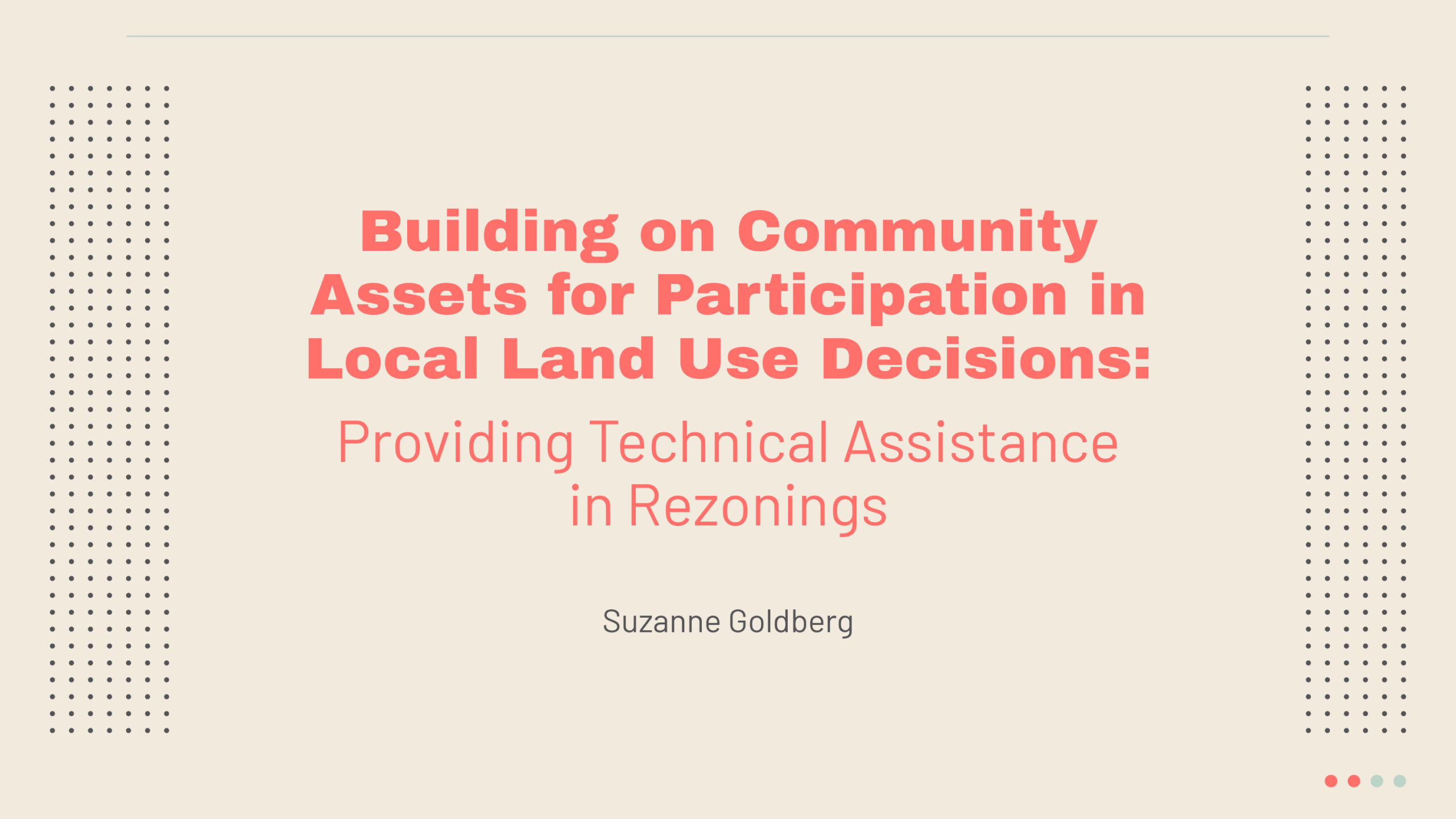Building on Community Assets for Participation in Local Land Use Decisions: Providing Technical Assistance in Rezonings

There is a lack of meaningful and sustained community participation in New York City land use decisions and the Uniform Land Use Review Procedure (ULURP) does not require adequate consideration of the adverse effects of rezonings. Currently, rezonings often advantage those seeking profit off of real estate development, rather than the interests of existing communities, which has resulted in the displacement of local businesses and residents. Decision-makers and developers frequently overlook or ignore the opinions and expertise of local residents within NYC land uses decisions, which ultimately results in inaccurate neighborhood-level information and the inequitable distribution of power in land use decision-making processes. Community-based organizations (CBOs) often advocate on behalf of residents and inform them of the effects of a ULURP decision. However, they are typically underfunded to do this type of work and/or lack the technical resources to engage with all aspects of ULURP to comprehensively advocate for their community’s interests.
The main purpose of this research is to examine the Neighborhoods First Fund (NFF)’s role in providing grants for technical resources to CBOs to help build upon community assets in planning and organizing. Through a case study examining a collaboration between NFF and the Bronx Coalition for a Community Vision (BCCV) in response to the City’s announcement of the Jerome Avenue Neighborhood Plan, this thesis uncovers the limitations of ULURP and recommends strategies for effective local participation and power sharing. A key aspect of these recommendations is the need to increase community power in planning and organizing in advance of City-led rezonings, rather than solely in response to them. There are many other flaws and inefficiencies within the ULURP process itself, however, this study examines a model for improving just one aspect of its structure through supporting community engagement and providing technical assistance for community advocacy.